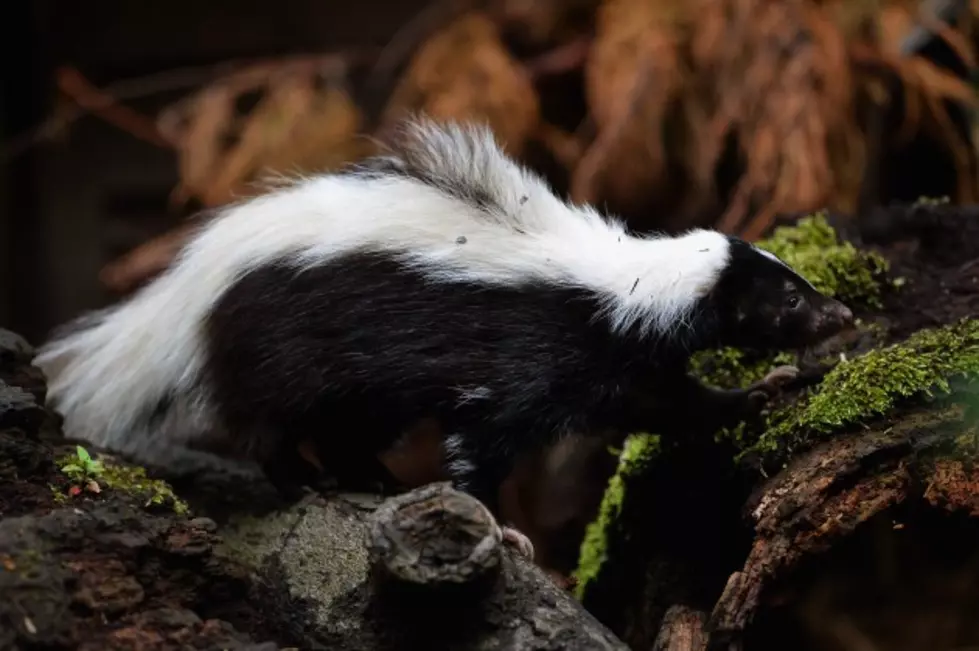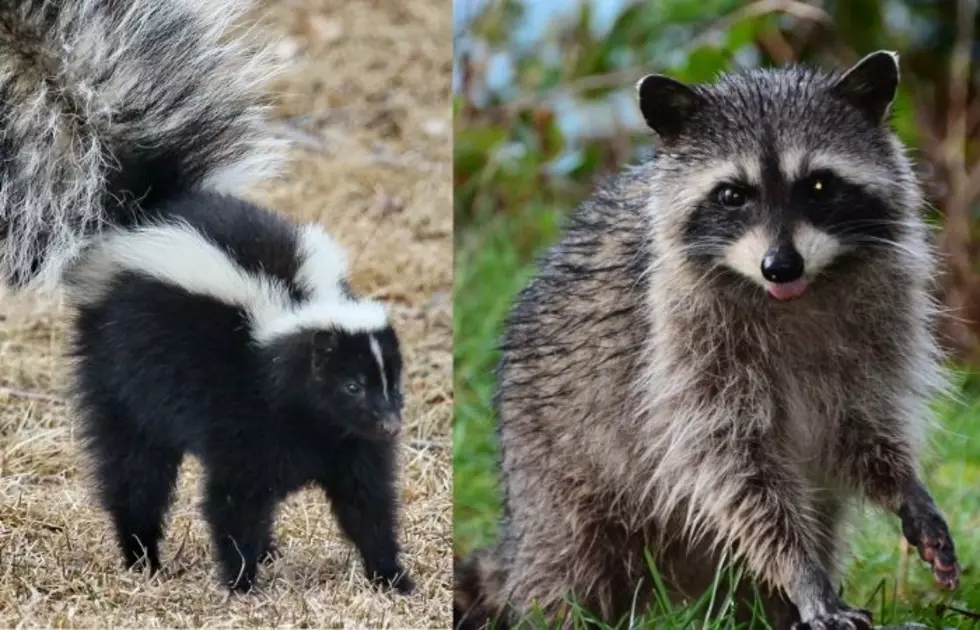
Skunks Lingering around Your House? Try This Natural DIY Skunk Repellent
Skunks are cute, but they stink. BAD. This time of year they can be a real problem.
Skunks are famous for their self-defence mechanism. That pungent smelly spray that can shoot up to 10 feet. When a skunk sprays you can smell it up to a mile away for days, sometimes even weeks, Skunk spray is very irritating and can cause tempory blindness.
The Havahart website says they eat beetles, grasshoppers, grubs and worms, bird eggs, small rodents, frogs, fruit, and berries. They are opportunistic eaters, and their diets are flexible, often shifting with the seasons.
Skunk Behavior
Activity: Skunks are nocturnal, so they are most active at night. They do not hibernate, but they tend to be inactive during the coldest months in winter when many gather in communal dens for warmth. For the remainder of the year, skunks are generally solitary, living and foraging alone.
Reproduction: Mating season is one of the only other times when skunks tend to socialize. Skunks have litters of 1-7 young in late April through early June.
Spraying: Skunks are known to release a powerful smell through their anal glands when threatened. Skunks will usually only attack when cornered or defending their young, and spraying is not the first method of defense. A skunk will growl, spit, fluff its fur, shake its tail, and stamp the ground. If the intruder does not leave, the skunk will then lift its tail and spray its famous skunk odor.
Here are a few things you can try first.
- A few basic things you can do to keep them away is using metal garbage cans with a lid, if you must feed pets outside then bring in food and water at night.
- Skunks will eat almost anything including bird food so don't forget to empty that at night.
- Try to keep crawl spaces, under your porch, shed and so on, sealed to keep skunks from coming into your home.
If that doesn't work try these ideas from Bright Hub. If you have pets check with your vet first to see if this is safe for curious critters.
Citrus Skunk Repellent
Skunks, just like most animals, do not like the smell of citrus. Spreading citrus peels along the perimeter your yard will help prevent skunks from entering your property. When the citrus peels dry up, they can lose their aroma; therefore, it’s necessary to scatter new citrus peels every time the peels dry up.
Cayenne and Jalapeno Pepper Mix
Another homemade skunk repellent that you can easily do involves some items from your kitchen pantry. Boiling 6 cups of water with 5 pieces cayenne pepper, ground, one large whole yellow onion and 5 pieces jalapeno pepper for 20 minutes will produce a concoction that you can spray along the perimeter of your house several times a week. Strain the mixture into an empty bowl, cool and then pour into an empty spray bottle. Skunks find the pungent and strong odor coming from the mixture offensive. Double up on the ingredients if the concoction does not smell strong enough.
Ammonia Soaked Rags
Ammonia emits an odor that does not appeal to skunks. Gather a few old rags and soak them in ammonia. Then, scatter the ammonia soaked rags along the perimeter or areas that skunks may go to. Once the rags dry up, they may no longer emit the ammonia odor. When this happens, soak the rags again in ammonia. You may opt for cotton balls if you ran out of old rags. Just drop the ammonia-soaked cotton balls inside the suspected skunk den and pathways. If you have a cat, you can use the litter in place of ammonia-soaked rags or cotton balls. The cat’s urine smells like ammonia.
Adding Lighting
Installing motion detector lighting can ward off skunks. Nocturnal by nature, skunks forage at night. Bright lights can scare away skunks that may enter your garden. Place the motion detector light around the perimeter of your home, under crawl spaces, storage sheds and other dark areas of your garden. You can also use a flashlight or spotlight and focus it at the entryway of the skunk's den. The skunk will move on if there's uninterrupted bright light.
Bonus Video ~ Cindy Tries Fried Pickles





